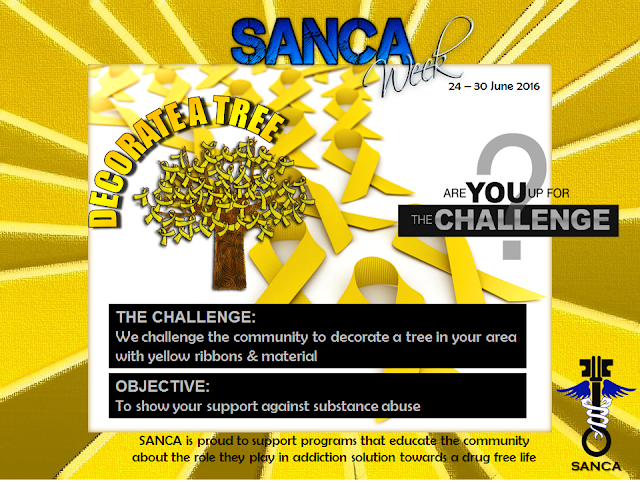Do you have FOMO???
Marietjie Landsberg
FOMO is the acronym for “Fear-Of-Missing-Out” on more interesting activities than what you are doing. A national South African survey, conducted by a pharmaceutical company with 3000 respondents indicated that 62% of people between the age of 15 and 50 live in this constant fear of missing out.
Other symptoms of this epidemic include the inability to put away one’s mobile phone, excessive messaging even while driving, tweeting on the toilet and showing up at events uninvited.
FOMO elevates stress levels, Mariska Fouche, spokesperson for Pharma Dynamics, who conducted the study said. "People who suffer from FOMO constantly push themselves to the limit and even when we are sick, we try not to miss out on social events, we still go to work and we can't say no and this adds a lot of additional strain on our immune system that in turn heightens our risk of more serious illness," she said.
More than a third of people surveyed said they often interrupt one call to take another and check online social sites like their Twitter stream or Facebook page while on a date, for fear that something more interesting might just be happening.
“FOMO is a blend of anxiety, inadequacy and irritation that can flare up especially while browsing social media," she said, adding the obsession has in many ways upped the demand for over-the-counter vitamin supplements.
The reality of anxiety caused by FOMO is so overwhelming that it is classified as a phobia better known as “no-more-phone-phobia” or “nomophobia”.
According to Psychology Today, Nomophobia can be defined as the rush of anxiety and fear you get when you realize you are disconnected or out of the loop with friends, family, work and the world.
Smartphones have increasingly become the tool we use to navigate and organize our daily lives. From keeping our calendars, getting directions, and communicating instantly with others, to helping us answer any questions we might possibly have about the state of our world or the people in it, our dependence on devices is clearly increasing.
What are the symptoms of nomophobia?
According to, www.fearof.net, the ultimate Phobia website, the fear of being without a cell phone can also cause various mental and physical symptoms including:
· Having elevated heart rate, sweaty palms, shallow breathing.
· Most phobics will go to great lengths to protect their phone. They will also keep checking the device every now and then for battery life and/or messages.
· They will never unplug and disconnect. They will ensure charging the battery so as to never be left without a phone. Many are even known to keep multiple phones.
· Majority of phobics experience a full-fledged panic attack when separated from their phone for long periods.
· They might use the phone in any place they deem fit, no matter how inappropriate.
· Their usage of phone often affects their relationships or even gets in the way of their work at school or office. Many Nomophobes are known to be loners or experience problems dating or maintaining relationships.
· Most sufferers of this phobia realize that their fears are irrational and uncalled for; yet they are unable to control themselves. As a result, their health and mental wellbeing also suffers.
The situation in South Africa
A study conducted by UNISA found that about six in every 10 pupils were heavily reliant on their cellphones..
It was done to determine problematic cellphone habits among high school pupils.
Almost 50 percent of surveyed pupils from private and public schools displayed addiction behaviours. The study also found higher prevalence rates of cellphone addiction among female, higher school grades and older pupils.
Their behaviour fell in line with other studies on cellphone behaviour conducted around the world, with psychologists describing several symptoms of the typical newly-emerged mental disorder known as smartphone addiction or smartphone dependence.
Teenagers and adults alike were in the grip of nomophobia, according to studies.
Nomophobia also describes the fear generated when a user is unable to communicate via cellphone.
Communication experts said it was characterised by a fear people faced when they could not get a signal from a mobile tower, run out of battery, forget to take the phone with them or simply do not receive calls, texts or e-mail notifications for a certain period of time.
Young smartphone users in the country said they used their phones for music, pictures, internet, send and receive text messages and for social networking. Adults, on the other hand, said they used their cellphones for social media, texting and chatting, online shopping and playing games. Both groups admitted that they spend hours on their cellphones and behavioural cellphone problems, the study said.
“Although it has not been officially described an addiction, cellphone addiction has been dubbed the new cigarette,” Unisa’s Professor Deon Tustin said.
Overuse of smartphones could affect users socially, physically and psychologically, he said.
Behavioural patterns were the tipping point, and could throw the country into a situation of a misunderstood addiction if the situation was not given urgent attention.
According to experts, cellphone addiction merited inclusion in substance and behavioural addiction, like a gambling disorder.
Overcoming this phobia can be challenging and while medical intervention is not always needed, there are many options available. Gradual exposure therapy and systematic desensitization are known to be the best remedies for this phobia. Other options include hypnotherapy which can get to the bottom of the phobia and eradicate it completely. For worst cases of this phobia, anxiety medication may be required.
The patient must also take steps to overcome his/her fear. This includes developing or practicing self help coping techniques like yoga, positive visualizations, guided meditation, listening to soothing music and /or attending support group therapy sessions. One can learn to overcome panic attacks by practicing deep breathing or indulging in physical activities like aerobic exercise, swimming, dancing etc.
Technology can be a blessing but also a curse.
Sources:


